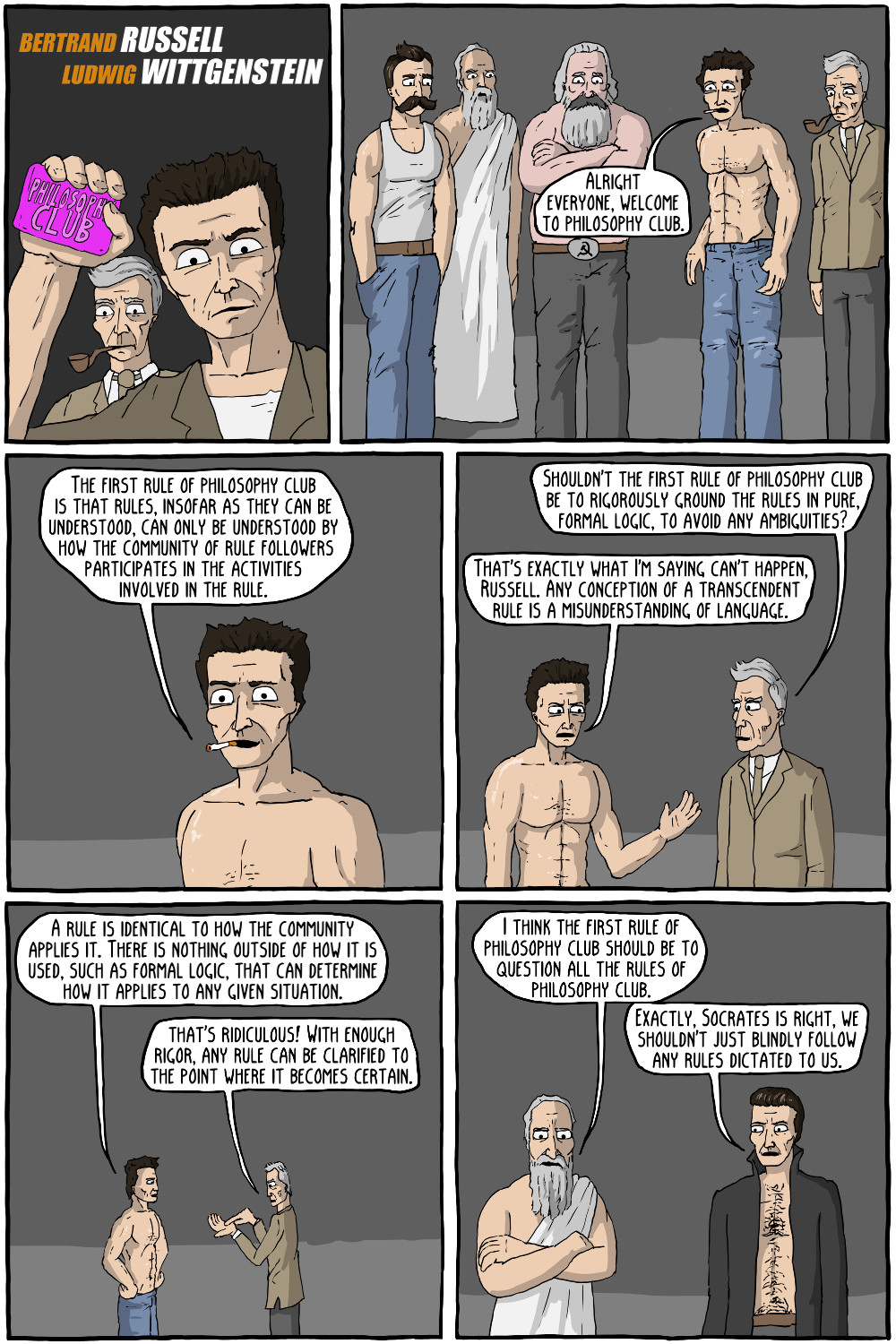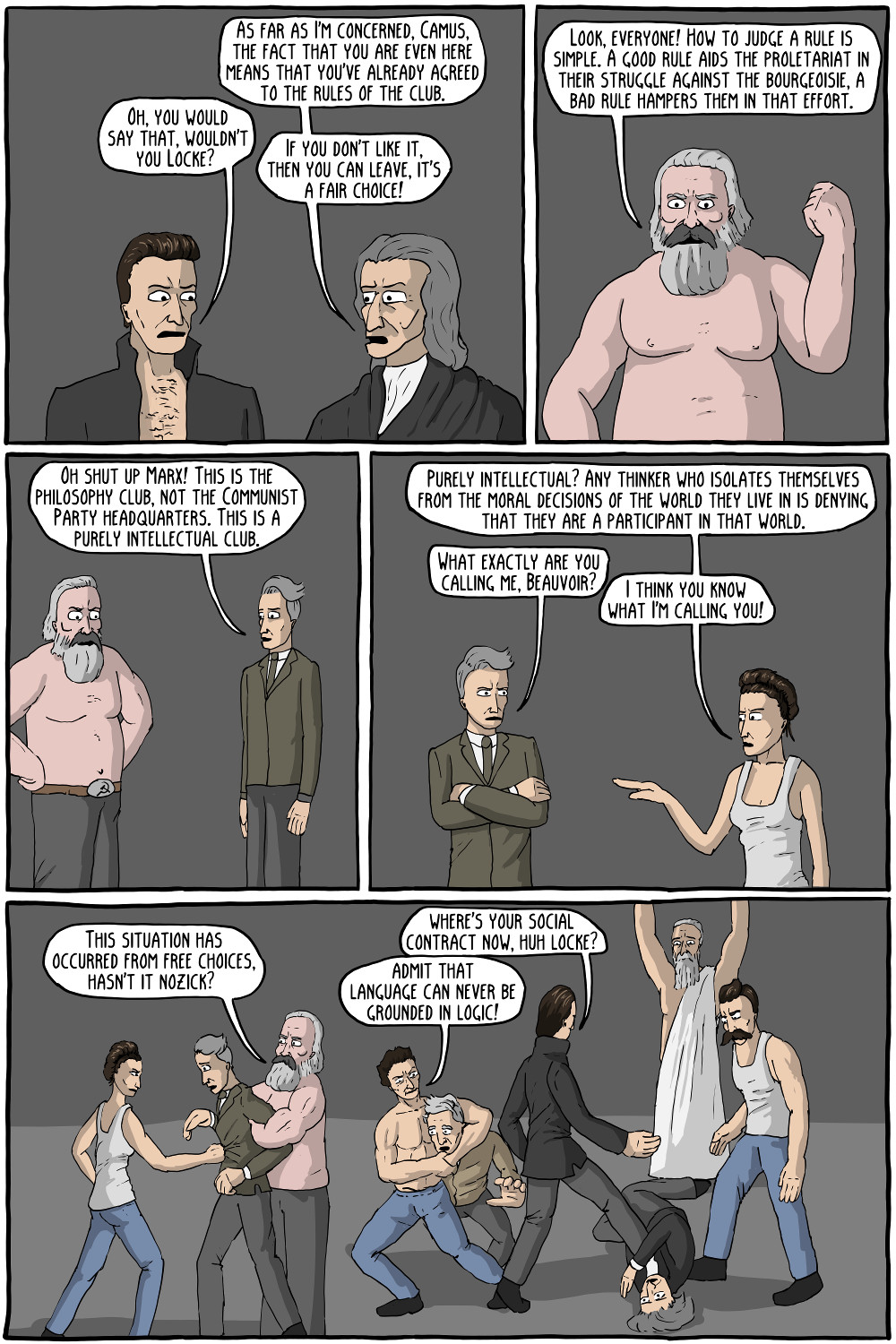

In Philosophical Investigations, Wittgenstein denied that there were any rules that exist outside of how they are used socially. He says that neither an external entity (such as a platonic logical function that exists outside of human ideas) nor an internal entity (the ideas in our mind) could ground what a rule is. A rule is only how it is applied within a group. You can read more about Wittgenstein's ideas on rule-following on Standford Encyclopedia of Philosophy.
Bertrand Russell was a colleague of Wittgenstein early in his career, but denounced his later work, such as Philosophical Investigations, saying it basically amounted to "the different ways in which silly people can say silly things". Russell seems to have failed to understand the impact the work would have, as it went on to be the most influential work in philosophy of language in the coming decades.
Marx's part is about his theories of society being driven largely by the stuggle between classes. Future Marxists even extended his theory of class struggle into many areas of life that we might not think it was applicable. They might, for example, say that good art was art that dismantled class power structures. This contrasts with the typical view of good art as being beautiful or art that inspires noble feelings in the viewer. They would probably call these Bourgeois values, and claim that such art was actively being used to oppress the proletariat.
In The Ethics of Ambiguity, Simone de Beauvoir enumerated the different ways in which a person could live inauthentically, without a "moral stance" in the world. One of the ways was to be in intellectual who locks themself in their ivory tower and never interacts with the world. The Ethics of Ambiguity was written in the shadow of her experiences in World War II, so you sort of get the feeling she had specific people in mind, who neglected to participate in the French Resistance, and carried on their intellectual pursuits as normal during the Nazi occupations. In The Mandarins, which is a fictionalized account of her circle of intellectual friends in post war France, she recounts how Camus could never be the same writer after spending years during The Resistance writing "with a pistol in his desk drawer". Beauvoir, Sartre, and Camus all worked during the occupation publishing a resistance newspaper, and all of their post war philosophy was heavily influenced by their experiences during the war.
Robert Nozick is being used here as the intellectual that Beauvoir complained about, whether or not that is fair is debatable, although I think it's somewhat accurate. He wrote one very influential political book (Anarchy, State, and Utopia), and then never wrote on politics again, instead focusing on epistemology. He was mostly chosen because his philosophy constrasts Marx, however.
John Locke was a proponent of Social Contract Theory, believing that we enter into a implicit contract with the government in order to insure our safety and maintain the rule of law among the group.
Socrates is Socrates. Nietzsche doesn't say a word, because he generally lets his fists do the talking.
Permanent Link to this Comic: https://existentialcomics.com/comic/90
Support the comic on Patreon!










